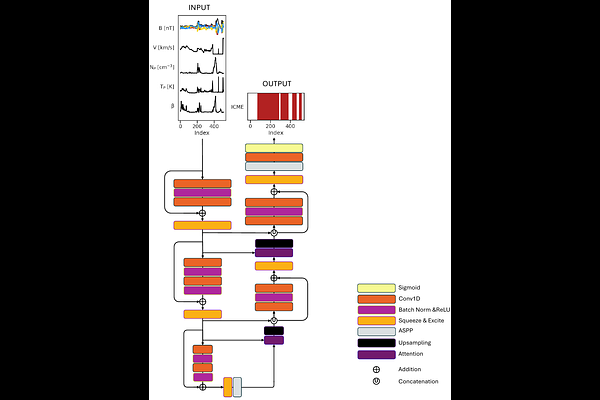ARCANE -- Early Detection of Interplanetary Coronal Mass Ejections

ARCANE -- Early Detection of Interplanetary Coronal Mass Ejections
H. T. Rüdisser, G. Nguyen, J. Le Louëdec, C. Möstl
AbstractInterplanetary coronal mass ejections (ICMEs) are major drivers of space weather disturbances, posing risks to both technological infrastructure and human activities. Automatic detection of ICMEs in solar wind in situ data is essential for early warning systems. While several methods have been proposed to identify these structures in time series data, robust real-time detection remains a significant challenge. In this work, we present ARCANE - the first framework explicitly designed for early ICME detection in streaming solar wind data under realistic operational constraints, enabling event identification without requiring observation of the full structure. Our approach evaluates the strengths and limitations of detection models by comparing a machine learning-based method to a threshold-based baseline. The ResUNet++ model, previously validated on science data, significantly outperforms the baseline, particularly in detecting high-impact events, while retaining solid performance on lower-impact cases. Notably, we find that using real-time solar wind (RTSW) data instead of high-resolution science data leads to only minimal performance degradation. Despite the challenges of operational settings, our detection pipeline achieves an F1 score of 0.53, with an average detection delay of 21.5% of the event's duration while only seeing a minimal amount of data. As more data becomes available, the performance increases significantly. These results mark a substantial step forward in automated space weather monitoring and lay the groundwork for enhanced real-time forecasting capabilities.